Football legend Philipp Lahm's insider guide to Munich
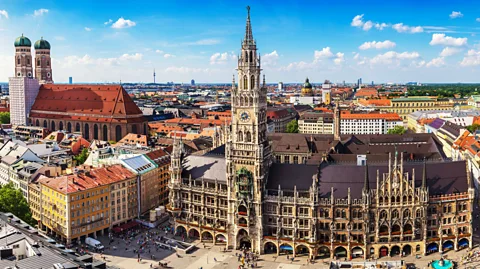 Alamy
AlamyHe's one of the greatest fullbacks of all time, and a proud Münchner to boot. Here are Lahm's picks for exploring Munich, during Oktoberfest and beyond.
Every year in late September, throngs descend upon Munich to enjoy its two-week-long explosion of bacchic revelry: Oktoberfest.
The party started back in 1810, when Bavaria's Prince Ludwig invited the citizens of Munich to celebrate his wedding, and the festivities simply never stopped – Oktoberfest has ballooned into Germany's most well-known beer festival. Today, while Oktoberfest celebrations are held in many German cities and overseas destinations, Munich's Oktoberfest reigns supreme, attracting roughly six million visitors from all over the world.
But the Bavarian capital is so much more than sum of its pints. As the epicentre of the German Baroque movement and a keeper of some of the country's oldest traditions, it boasts an enviable array of both cultural and natural diversions that are sure to keep any visitor entertained in between the chugs.
To get to the heart of this vibrant city, we spoke to lifelong Münchner Philipp Lahm, the German football legend who captained the German national team when it won the 2014 FIFA World Cup.
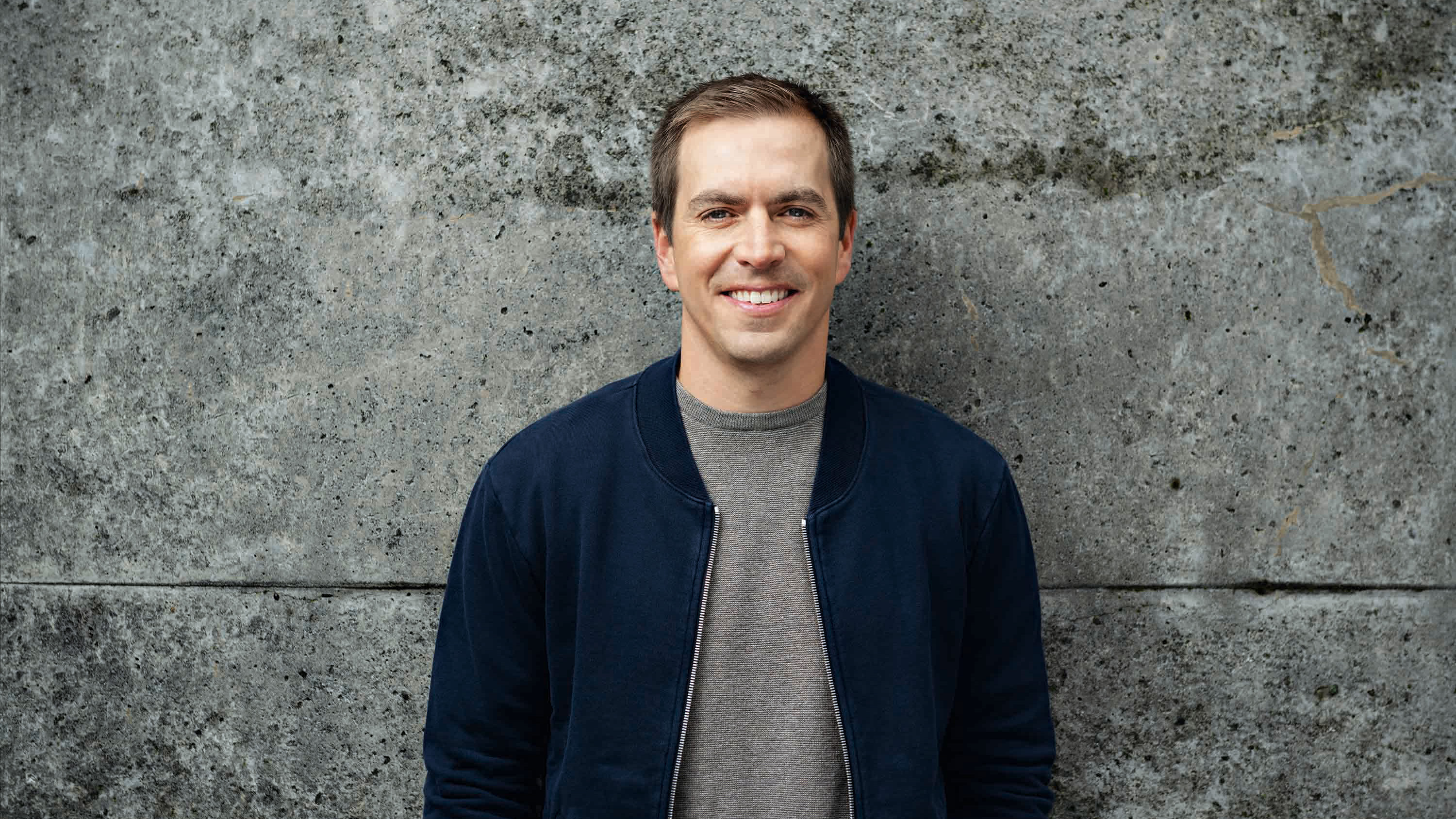
The SpeciaList
Former footballer Philipp Lahm was the fullback for Bayern Munich from 2002 to 2017. Widely considered one of the greatest players of his generation, he served as captain for both Bayern Munich and the German national team and is among the country's 10 most-capped players. He subsequently became the tournament director for UEFA Euro 2024, which was held in Germany.
"I grew up very sheltered with my family," Lahm says. "[Munich]'s a big city, but it's not too big… And, of course, it shaped my football career because I had a world-class club in my hometown."
While tourism has been a source of tension for some European destinations grappling with its nastier side effects, Oktoberfest remains a source of pride for Munich, and – as Lahm notes – it embodies the "welcoming" spirit of the city.
Lahm encourages foreigners visiting for Oktoberfest to follow the local traditions – getting the dress code right, for instance, and eschewing the larger tents for the smaller ones favoured by the locals.
But he also hopes visitors will venture outside the Theresienwiese – the 42-hectare site where the festival is held – to discover the Bavarian city's full beauty, from its bustling markets and serene parks to the very stadium where Lahm played for more than 10 seasons.
Here are Lahm's favourite places in his hometown of Munich.
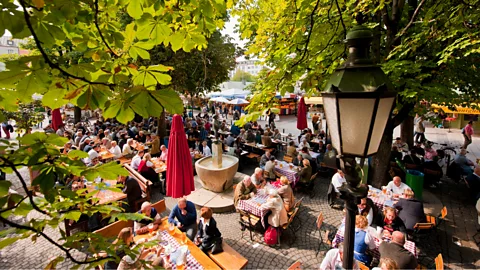 Getty Images
Getty Images1. Best local gastronomic experience: Viktualienmarkt
For more than 200 years, locals have been convening at Munich's Viktualienmarkt in the city's Aldstadt (medieval ancient quarter) to stock up on fresh produce.
While the city's market used to be held in its neo-Gothic Marienplatz – the Bavarian capital's unmistakeable symbol – it was eventually moved to a nearby square, where the former farmers' hub has now become renowned for its refined gourmet treats.
Stick to the dress code
Nothing is worse than missing the memo when showing up to a party, and Lahm urges visitors to avoid this faux pas by dressing appropriately for Oktoberfest.
"What is very, very important for us Munich residents or Bavarians is to wear the right traditional costume," he says, referring to the Lederhosen for men and dirndl for women.
It's also Lahm's first stop for savouring Munich's culture. "You can get the whole idea of what Munich is about," he says.
The market's atmosphere is quaint and demure, with small fountains nestled between more than 100 food stalls, selling all manner of local delicacies, from Bavarian cream doughnuts and cheese spreads (Obatzda), to the famed local white sausage (Müncher Weißwurst) – a reputed hangover cure.
"There are lots of different stalls," Lahm says. "There are food and drink options, you can buy fruit and vegetables, so it's a lovely atmosphere in the centre of town."
Beer is never far away in Munich, and, at the end of a stroll, you can enjoy a pint or two under the chestnut trees of the market's beer garden, which is open every day from 09:00 to 22:00.
Website: https://www.viktualienmarkt-muenchen.de/en/home/
Address: Viktualienmarkt 3, 80331
Phone number: +49 89 8906 8205
Instagram: @viktualienmarkt_muenchen
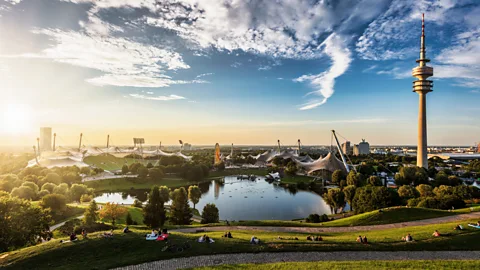 Getty Images
Getty Images2. Best views: Olympiapark
At the foot of the Bavarian Alps and bordered by lush forests and rolling hills, Munich is a nature-lover's paradise.
Roughly 7km from the city centre, the Olympic Park – known locally as Olympiapark and inaugurated for the 1972 Olympic Games – serves as a gateway to the city's more bucolic side.
"It's a large park," says Lahm. "The roofs are still the same as they used to be, the stands in the indoor swimming pool are still similar to what they were back then, so the Olympic Park is a wonderful place to be active, but also to experience the history of the Olympic Games."
The park's 60m-tall hill, Olympiaberg, not only offers unparalleled views of its surroundings, but it also has an added perk: it allows park-goers a peek inside the Olympic Stadium.
Once a well-kept secret, videos went viral on social media this summer, showing thousands enjoying Taylor Swift and Coldplay concerts for free from the top of the hill.
But for the best views of the city and its surroundings, Lahm advises heading up to the top of the TV tower.
"From there you simply have a wonderful view over Munich," he says. "You can [even] see the Alps from there."
Website: https://www.olympiapark.de/en
Address: Spiridon-Louis-Ring 21, 80809 München, Germany
Phone: +49 89 3067 2054
Instagram: @olympiapark
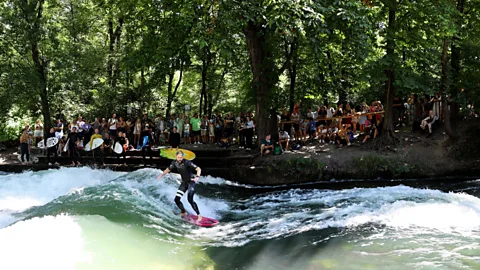 Getty Images
Getty Images3. Best unexpected outdoor experience in the heart of the city: the Englischer Garten
It would seem unlikely to associate Munich, which is more than 500km from the ocean, with water sports.
Yet, the city's Englischer Garten (English Garden) allows visitors to try their hand at a seemingly unlikely pursuit: surfing.
The sprawling, 3.75sq-km English Garden was opened in 1792, and is a testament to the whimsical, romanticist fantasies of the time, peppered with follies, lakes and pagodas. But among its most striking features is the Eisbach ("ice brook"), a man-made river with an artificial wave suitable for surfing – making it particularly popular in the dog days of summer.
"[There are] the Eisbach surfers in the middle of the city, a small, fantastic wave where lots of people are surfing and there are many spectators," says Lahm. "It's something very special for me in a big city."
Website: https://www.englischer-garten-muenchen-infos.de/en/
Address: Englischer Garten 1, 80538 / (Eisbach) Prinzregentenstr 1, 80538
Phone: +49 89 3866 6390
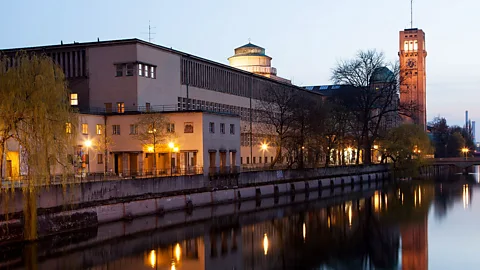 Getty Images
Getty Images4. Best family-friendly cultural outing: the Deutsches Museum
While Munich might be more typically associated with the colourful folklore of its centuries-old traditions, it is also one of Europe's economic motors and a hub of innovation. So for those travelling to Munich with little ones – yes, the Munich Oktoberfest is proudly kid-friendly – Lahm suggests taking a detour to the Deutsches Museum for an enriching, family-oriented educational experience.
"Children can be active there, but of course [you can] experience a lot of the history and everything about Germany," he says.
Opened in 1903 on Museuminsel (Munich's "Museum Island"), the Deutsches Museum is the world's biggest science and technology museum. Its colossal collection of more than 28,000 items is housed in four separate buildings, and visitors can explore its 20 permanent exhibits ranging from astronautics to robotics to historical transportation; a welcome distraction from Oktoberfest's noisier shenanigans.
Website: https://www.deutsches-museum.de
Address: Museumsinsel 1, 80538
Phone number: +49 89 2179 333
Instagram: @deutschesmuseum
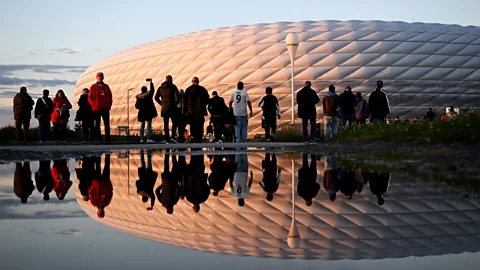 Getty Images
Getty Images5. Best German football experience: The Allianz Arena
Something of a pilgrimage site for football fans since its opening in 2005, Munich's Allianz Arena is no regular stadium. Widely considered one of the world's most striking sporting grounds, designed in the distinctive Bauhaus style, it is the home stadium of FC Bayern Munich.
"It's always worth visiting the [FC Bayern Museum] in the Allianz Arena," Lahm says. "A guided tour of the Allianz Arena is always something special, because I believe that Munich is known worldwide for the Oktoberfest on the one hand, but also for FC Bayern on the other."
Lahm's memories of his time at the stadium are tinged with a palpable nostalgia, not only because of his successes on the fields – but because he got to represent the very place in which he grew up.
"What's always great and what not everyone gets to experience is playing a home tournament," he says. "I was very lucky to play the World Cup in Germany in 2006, and the opening game was in the Allianz Arena, in my hometown. My family and friends were in the stadium, it was [my] first World Cup."
"I also scored 1-0… just a few kilometres from my home," he says. "And that's something very special. I have to say, I'll always associate that with the Allianz Arena."
Address: Werner-Heisenberg-Allee 25, 80939
Website: https://allianz-arena.com/en
Phone number: +49 89 6993 1222
Instagram: @allianzarena
BBC Travel's The SpeciaList is a series of guides to popular and emerging destinations around the world, as seen through the eyes of local experts and tastemakers.
--
If you liked this story, sign up for The Essential List newsletter – a handpicked selection of features, videos and can't-miss news, delivered to your inbox twice a week.
